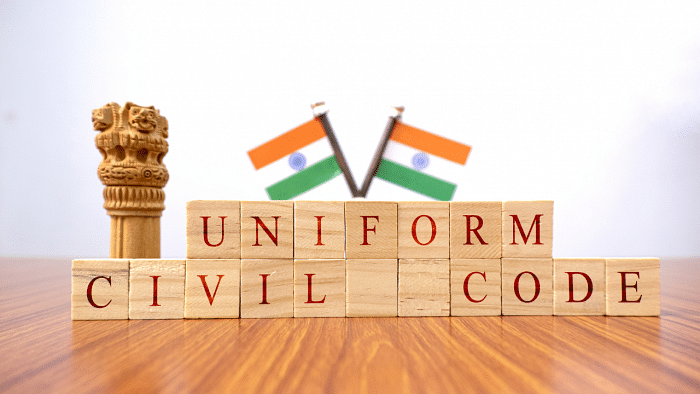
When the Bhartiya Jan Sangh, the pre-Emergency Avatar of the BJP, was born on October 21, 1951, nearly 200 delegates who assembled at the forecourt of Arya Kanya Vidyalaya near Delhi’s Gol Market endorsed the party’s guiding principles and policies, including “application of the Constitution in Jammu and Kashmir as in the rest of the country” and adoption of a “Uniform Civil Code”.
The Ram Temple entered the BJP’s agenda much later – as late as in 1989 when it held its national executive meeting at Palampur in Himachal Pradesh. The UCC and abrogation of Article 370 of the constitution predate everything else on the agenda of the party and are thus central to its belief system.
As the BJP’s second full majority government enters its last year in office, the only unfulfilled core agenda for the party and its ideological fount – Rashtriya Swayamsevak Sangh – remains the implementation of the UCC.
But political decisions are seldom based on a mere ideological hangover.
Thus, the BJP’s strong pitch for UCC has to be deconstructed in a wider context.
The UCC pilot project actually started almost a year back with the constitution of an expert panel by the BJP government in Uttarakhand.
Earlier this month, the Law Commission met the Uttarakhand committee and shot off a missive to stakeholders seeking views on the UCC. The latest move came four years after one of its own consultative papers had called the UCC “neither necessary nor desirable”.
Also Read: UCC to be implemented in Uttarakhand soon; Congress leader calls it 'DCC' - Dividing Civil Code
The sudden escalation of the UCC debate in the election year is hardly surprising as the ruling party attempts to synchronize with its core constituency. The outcome of the Karnataka polls may have only expedited the process in the face of the Congress’s alacrity in shedding any inhibitions of playing on the caste pitch and a renewed bid for minority votes.
The immediate issue thus for all concerned parties is not as much the enactment of a law per se, but the accompanying surround sound, which would add to the election melee. The opposition is wary of the political spillover of the UCC debate ahead of the next bunch of state assembly elections and the 2024 Lok Sabha polls.
A polarized debate on UCC is a ‘trap’ the non-BJP parties would want to avoid. Not surprisingly, the attendees of the Patna plenary have reiterated their position without joining issues with the ruling party.
As for the BJP, its stand on UCC, as articulated by the prime minister, is nuanced and layered.
While a heated UCC debate can recharge and enthuse the BJP’s core constituency, it can also engender countervailing polarization.
Ostensibly, to palliate the alternative narrative, while making a strong pitch for a common personal law code, the prime minister reached out to two subsections within Muslims – women and Pasmanda Muslims, whom the BJP has been trying to woo as part of the larger outreach to the beneficiary or the ‘labharthi’ group.
The UCC test balloon is afloat. Its implementation, however, would be a purely political decision based on an assessment of its impact on the electoral battlefields of Rajasthan, Madhya Pradesh, Chhattisgarh, and Telangana.